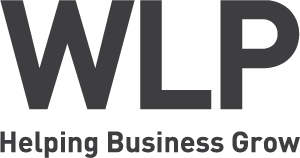Using a consultant can have many benefits, but before we go through these benefits it’s important that we cover a few things about consultants, as well as some tips for when you are using one.
The nature of a consultant’s engagement with the client will change as priorities are refined and projects develop. Care must be taken to keep the project focused and stop it becoming an open-ended arrangement. It is essential that the client clearly remembers the initial purpose of the consultancy, and that changes in direction are subject to rigorous assessment.
A consultancy assignment may contain a number of elements simultaneously. In other cases there may be a clear sequence from the strategic, through the tactical, to the purely operational. This could mean changing consultancies or adding other practices to the team, as the consultancy you start with may not be the most appropriate choice going forward.
Now, onto what you came to read…
The benefits of using consultants include:
- Unique solutions that reflect the circumstances and aspirations of the client.
- Speed, because the consultancy team (unlike the in-house management) isn’t distracted by urgent other tasks.
- Knowledge of ‘best practice’ and effective solutions from within the client’s industrial/commercial sector.
- Exposure to expertise derived from other industries and sectors.
- Provision of specific technical skills that are non-existent or in short supply in-house, and often the transfer of such skills to in-house staff and avoid recruiting an underused specialist who will probably leave.
- Change management skills enhanced by the consultant’s position as independent, objective and experienced at effecting change.
This should lead to value for money, demonstrated through the client’s improved performance. The client can increase the likelihood of a good outcome by establishing with the consultant what the outcome should be. If it is a final report what will it include and how it will be presented. They should understand the time commitment of the consultancy and who will carry out the work. Too often clients are surprised the people they meet are not those doing the work. It need not be like that.
It is also important to agree the amount if any of knowledge transfer from the consultant to the client’s organisation. It is essential that the organisation is briefed about the project to prevent obstruction or lack of commitment.
If you want to enjoy the benefits of using a consultant, read more about writing consultancy/project briefs and what they need to include. To find out a client’s reason for wanting to use consultants and what to use them for, read why should I use a consultant.
For more information on using a consultant and the benefits, contact us on enquiry@w-l-p.co.uk.
Have a quick look at the WLP team and our services.
